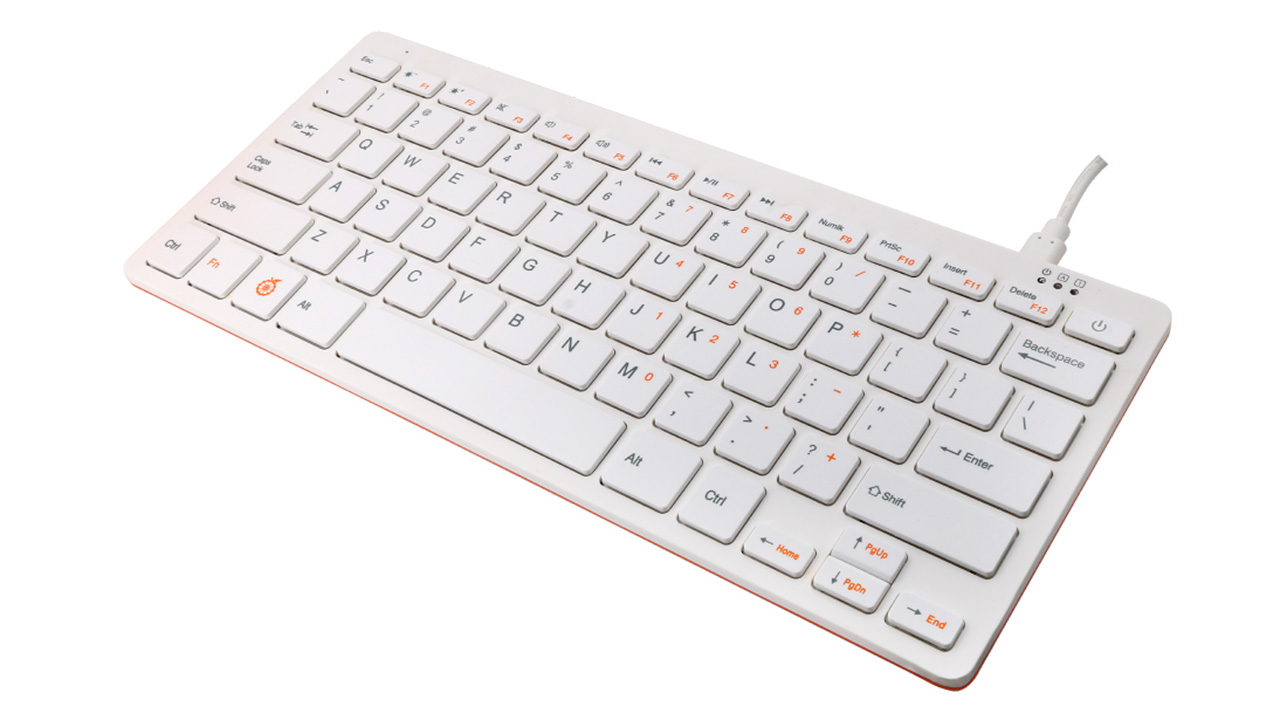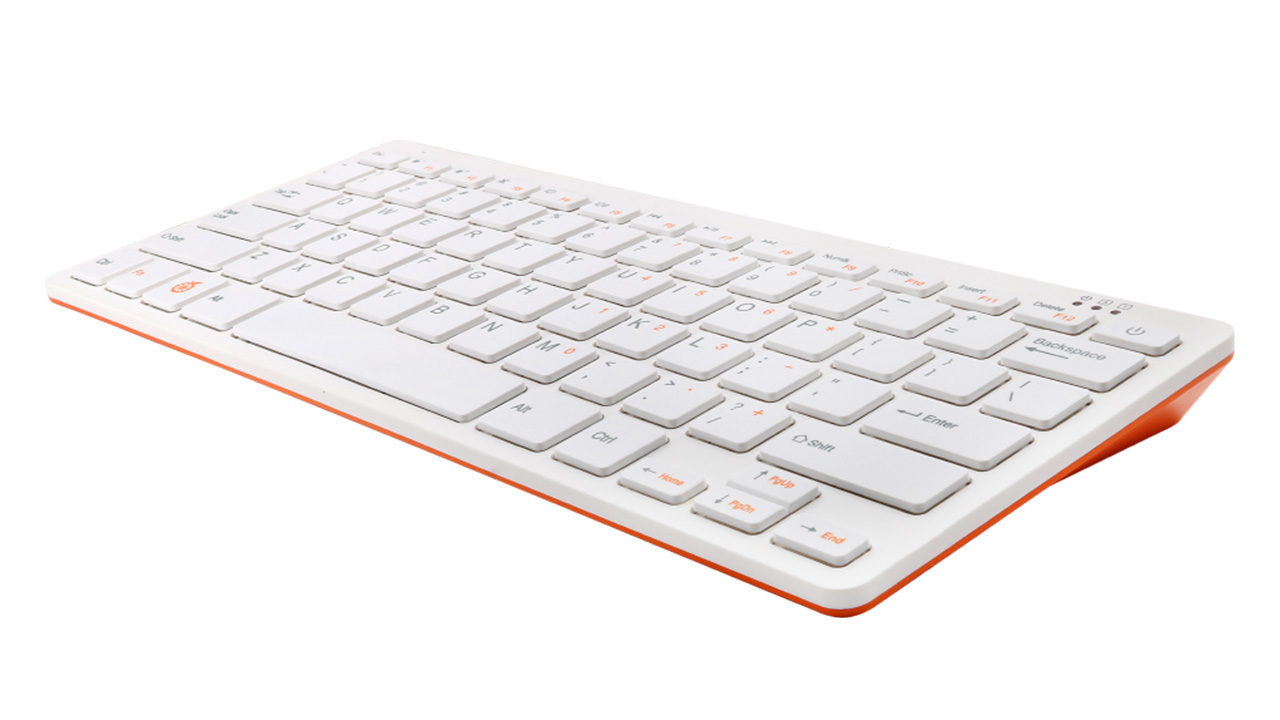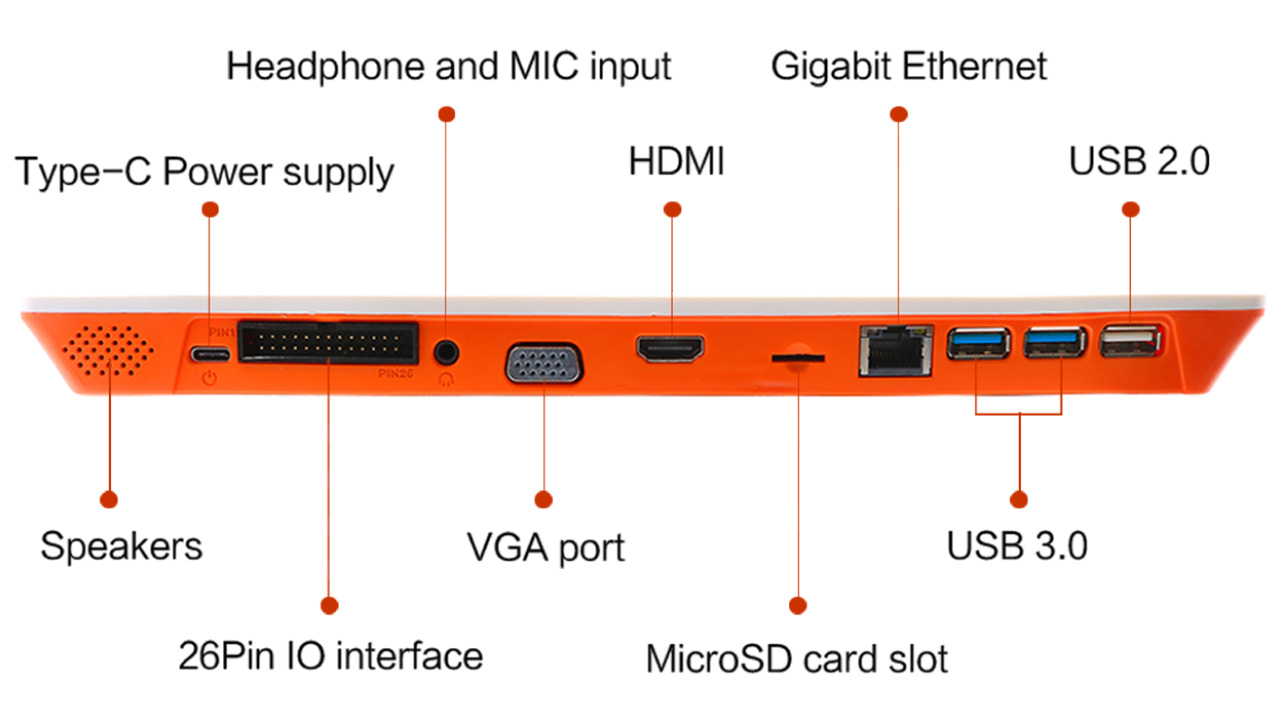Orange Pi 800 Aims For Slice of Raspberry Pi 400
The Raspberry Pi 400 finally sees a contender
The Raspberry Pi 400 has held the computer-stuffed-into-a-keyboard market to itself for a while now, so it’s good to see that the form factor now has a competitor. Enter the Orange Pi 800, with thanks to CNX Software for bringing this to our attention.



The Orange Pi 800 looks very much like the Raspberry Pi 400, down to the three circular LEDs at the top right of the keyboard and the general white, rounded-cornered aesthetic. In fact the two could easily be mistaken for one another. Around the back they’re somewhat similar too. The Orange Pi 800 includes a VGA video out in place of one of the Raspberry Pi 400’s micro-HDMI ports, but otherwise keeping parity in terms of USB ports, Ethernet and GPIO accessibility.
Inside is another matter, as the 800 is built around the Rockchip RK3399 chipset, silicon that Orange Pi has used before. It’s a six-core CPU with a pair of Cortex-A72 cores (1.8GHz) backed by a quartet of Cortex-A53s (1.4GHz). Add a Mali-T860MP4 GPU, 4GB of LPDDR4 RAM and 64GB of eMMC storage, and you’ve got something not unlike a modern Commodore 64, all in a case measuring 11.2 x 4.8 x 0.9 inches (286 x 122 x 22mm) and weighing 385 grams (13.5oz).
There's Wi-Fi and Bluetooth 5, two USB 3 ports and a lone USB 2 (power comes via a Type-C port), a full-size HDMI 2.0a port capable of 4K 60FPS, that VGA port capable of 1080p, gigabit Ethernet and a headphone socket. There's a micro SD card slot for extra storage, and a 26-pin GPIO header that pokes out of the casing in exactly the same way as on the Pi 400, and which might need an extender just like the 400 sometimes does if you want to use a HAT. The 26 pin GPIO means that we can largely forget about reusing Raspberry Pi HATs, but the pins should have digital IO, PWM, I2C, SPI and UART for most electronics projects.
A translation of the 800’s Chinese product page - the English one being somewhat bereft of details - points toward the 800 shipping with Google’s Chromium OS, but that Orange Pi OS - based on Arch Linux - will fully support the hardware. Launch pricing, and indeed timing, are currently both unknown.
Get Tom's Hardware's best news and in-depth reviews, straight to your inbox.

Ian Evenden is a UK-based news writer for Tom’s Hardware US. He’ll write about anything, but stories about Raspberry Pi and DIY robots seem to find their way to him.